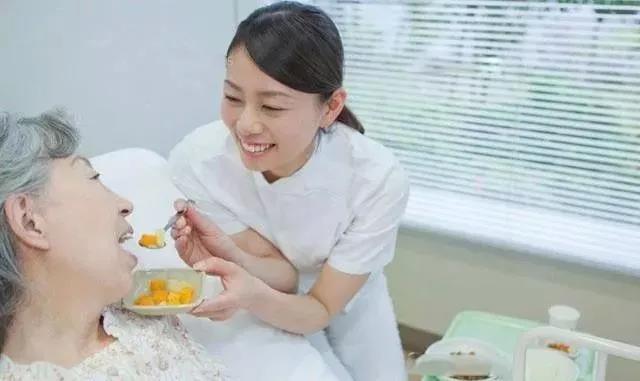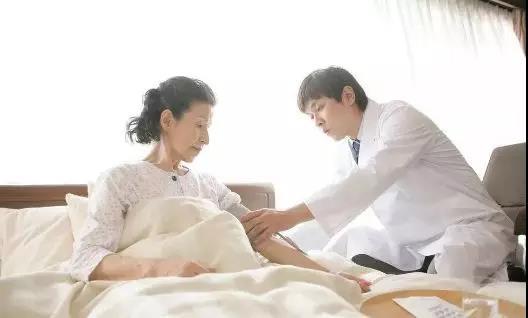Bedridden Elderly Care Tips Explained
Release time:
2024-10-28 11:45
In this collation for some suffering from chronic diseases or paralysis life can not take care of themselves and need to be long-term bedridden elderly patients, talk about long-term bedridden elderly care experience. I hope it will be helpful to all of you!

1. Establishment of a comfortable living environment
The living environment for the long-term bedridden elderly must be clean, tidy and quiet. The setting should take into account as much as possible the conditions of convenience, comfort and safety for the elderly. The room should be ventilated regularly by opening the windows every day to keep the air fresh and the sunlight sufficient. The room temperature should be kept between 18-20°C and the humidity should be 50-60 per cent. The room can be furnished with some flowers and green plants to add vitality, in order to enhance the confidence and courage of the elderly to fight with the disease. Appropriate to the elderly can play some pleasant light music, which can help ease the mood of the elderly and speed up the recovery process.
2. Daily basic care is crucial
1. Keep beds flat, clean and clothes clean and comfortable. Older people's bed sheets, quilt covers, pillowcases and other bedding should be changed and cleaned frequently. Incontinent people should lay a 120X100cm size sheet under the body, and then lay a layer of cotton sheets or thin cotton pads on top of it, so as not to wet the skin. The bed should be cleaned 2-3 times a day to keep it flat, clean and wrinkle-free, and the wet sheets should be replaced at any time. Elderly people should be dressed in wide and soft clothes, collar buckle, belt should be loose and easy to undo, does not affect the breathing.
2. Do a good job of morning and evening care. Morning care can promote the blood circulation of the elderly, maintain oral hygiene, make the elderly feel clean and comfortable, and help prevent complications, including: mouth, face, hands, skin, bed linen cleaning, as well as hair combing and massage of the pressure place. Evening care can make the elderly relaxed, comfortable, clean, and promote sleep, including: in addition to repeating the content of morning care, wipe the elderly back and buttocks, soak the feet in hot water, rinse the perineum for the elderly, cut the nails, tidy up the bed unit, and pay attention to keeping warm.
3. Do a good job of feeding and drinking in bed. For bedridden people who can not take care of themselves to do a good job of bed feeding, caregivers should wash their hands before feeding, the elderly are best to take a sitting position or semi-sitting position, prone or lying down should be made to turn their head to the side, so as to avoid choking on the food into the windpipe. Feeding should be slow, and when feeding soup, avoid pouring straight from the middle of the mouth, and pour in slowly from the lips. Patients who can't eat and need nasal feeding through gastric tube should strictly follow the process of nasal feeding, and strictly calculate the daily amount of nutrient solution, food homogenate and water. For patients with poor digestion and absorption function, nutrition pump can be given according to medical advice to continuously pump in gastrointestinal nutrition solution.

3. Psychological care should not be ignored
As the elderly are bedridden for long periods of time, which reduces their opportunities to come into contact with the outside world, most of them often have bad emotions such as hesitation, frustration, irritability, pessimism and disappointment, which are aggravated by the pain of their illnesses. For this reason, the different psychological characteristics of each elderly person should be tailored to the care of the individual.
First of all, the caregiver should respect the patient, pay attention to their own words and behaviour, dignified instrument, say more encouraging language, address to use honorifics and honorifics, before the operation to use the tone of advice to discuss the problems raised by the elderly to give timely and satisfactory answers.
Secondly, we should give timely emotional relief, caregivers should use warm attitude, kind words, talk with them more, sympathise, understand and comfort them.
4. Bedside care for major complications in long-term bedridden patients
1. Prevent foot drop. It is very easy to form in people with lower limb paralysis. The foot should be given support, such as using a footplate support, pillows and other things, so that the foot and the leg at right angles, and keep the dorsiflexion position, in order to prevent contracture of the Achilles tendon. When keeping warm in winter, the pressure of the quilt on the foot should be noted, and the quilt can be supported by a brace or a clean cardboard box to avoid pressure on the dorsum of the foot, and the elderly should be instructed and helped to exercise their ankle joints to avoid muscle atrophy and joint stiffness. Prevention of knee deformity: Putting cushions under the knee joints can prevent knee swelling and overstretching of the joints (knee counterstretching), and the time should not be too long. Several times a day to prevent knee flexion contracture.
2, oral care and prevention of respiratory infections. Bed-ridden elderly weak, immunity, resistance is reduced, the respiratory tract and lungs of the defence capacity is reduced or reduced, easy to inhalation, fall lung pneumonia. Long-term bed-ridden chronic elderly, the oral cavity is more than normal bacteria carriers, the oral cavity of conditional pathogenic bacteria carrying rate is also higher than normal. The oral cavity is one of the pathways for pathogenic microorganisms to invade the organism, and inhalation of oral and pharyngeal bacteria is the main way to produce bacterial pneumonia. In oral care, it is important to note the relationship between brushing and gargling, and for the bedridden elderly, sometimes gargling appears to be more important than brushing. Therefore, bedridden elderly people are required to rinse their mouths after meals. For patients who are seriously ill or have difficulty in swallowing (stroke, cerebral palsy), etc., and those who are unable to rinse their mouths due to illness or other reasons, the caregivers are required to follow the doctor's instructions to do oral care for the elderly 2-3 times a day, so as to thoroughly remove the bacteria in the oral cavity.
3、Prevention and care of lung infection. Keep the environment of the room clean, open the window for 30min in the morning and evening every day to ventilate the room, the indoor temperature should be kept at 22~24℃, the humidity should be 50%~60%, and the ultraviolet lamp should be disinfected once a day for 30 minutes each time. Long-term bedridden elderly, respiratory secretions are not easy to cough up, therefore, the elderly should be encouraged to do deep breathing and effective coughing up sputum, knocking back to promote sputum discharge every time you turn over, knocking back when the hand was back to the palm of the hollow, from the bottom of the lungs to the direction of the trachea and gradually knocking, from the bottom to the top, from the outside to the inside, more than 10 times each time.
4, skin care to prevent pressure sores. For long-term bed-ridden elderly use air mattress beds, so that the pressure parts of the air and blood run smoothly, but still need to turn over regularly. Turn over every 2 hours during the day, not more than 3 hours at night to turn over once, regular turning over the elderly we made a turning record card, time, position, skin conditions recorded in a timely manner to ensure that the implementation of the plan. Because of the poor skin elasticity of the elderly, especially long-term disease consumption, patient wasting, subcutaneous fat, muscle atrophy, turn over should be particularly careful, it is appropriate for two people to co-operate, the action is gentle, accurate, to avoid dragging, pulling, pushing, to reduce the friction of the skin, and at the same time, should keep the bed clean, smooth, no debris, to avoid friction of the skin and debris and folds of the bed sheet. Turn over before the back should be patted, asked to cough, and then let the elderly drink warm boiled water 1-2 mouth, turn over again should check the pressure of the bone protrusion, in order to understand the skin condition in time.
5、Prevent the occurrence of lower extremity venous thrombosis. When lying in bed, the affected limbs should be elevated above the level of the heart, in order to reduce the oedema of the affected limbs, the elderly should correctly understand the disease, maintain an optimistic mood, and positively face the treatment of the disease, in addition to the family members should often communicate with the elderly, so as to eliminate the sense of tension, and positively face the treatment.

5. Policies for the care of incontinent patients
Long-term bedridden and suffering from incontinence, nursing care for infectious diseases should be timely anti-infective treatment, good psychological care is essential, basic nursing skills are also very important. First of all, we should analyse the age of the elderly, their condition, the cause of incontinence, the time (morning, evening), etc., and formulate an individualized care plan based on the analysis. If the elderly is awake, but weak and weak, involuntary urination and defecation, this type of situation can be achieved by observing the elderly's diarrhoea pattern, and then set up and arrange the diarrhoea care plan according to the pattern, so as to achieve the purposeful and prepared active care, and to reduce the number of times of urination and defecation in bed. If the effect is not good, according to the actual situation of indwelling urinary catheter, 1-2 times a day for urethral disinfection, according to indwelling urinary catheter routine care. Stools should be cleaned up in time, and the perianal skin should be protected by appropriate rubbing of ellagic acid ointment and so on.
6. Strengthen the functional exercise of the limbs
In conclusion, special attention should be paid to the care of the long-term bedridden elderly, so as to minimise their pain and improve their quality of life as much as possible in a comfortable and warm environment.
Previous Page
Next Page
Previous Page
Next Page
Related News


